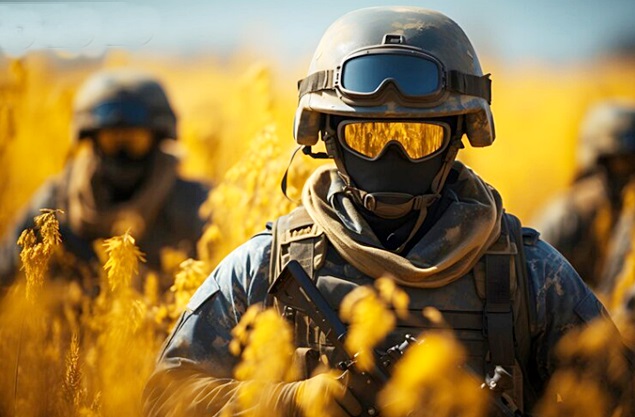1204

Many key commodities in the food industry come from conflict zones. What role can a social enterprise play in helping businesses operate in these areas without exacerbating harm? Here are some possible solutions provided by experts at FoodNavigator.
What does TrustWorks Global do?
Many countries facing conflicts are sources of key crops for the food and beverage industry, such as coffee, cocoa, and sugarcane. When operating in such countries, food companies need to understand these conflicts to ensure they do not unintentionally cause or contribute to conflicts.
Could alignment with a social enterprise help food businesses navigate their way through fragile and conflict-affected settings (FCS)? TrustWorks Global, itself a social enterprise, believes it can.
TrustWorks Global is committed to enhanced human rights due diligence (hHRDD) in a conflict-sensitive manner. The operation supports corporate and/or country teams in implementing governance processes to ensure operations meet or exceed responsibility standards through integrated processes that transcend company silos.
Companies also assess whether country teams are prepared to operate within specific FCS by conducting hHRDD and conflict sensitivity analyses at the country level, as well as impact assessments of client operations and supply chains within those FCS, creating roadmaps for adapting operations and procedures.
In addition, TrustWorks Global provides training to teams and leaders on hHRDD, conflict sensitivity, and "soft skills" such as mediation and facilitation, and helps clients manage crises within FCS.
Enhanced Human Rights Due Diligence (hHRDD)
Enhanced human rights due diligence (hHRDD) is not simply more due diligence on human rights. Instead, it is a very specific approach to human rights due diligence that combines human rights due diligence with conflict analysis to understand whether and how business activities might worsen the situation.
"We support companies to ensure that they have established the right policy frameworks to work responsibly in conflict-affected contexts; generally, this involves either incorporating a ‘conflict lens’ into existing human rights policies or creating a standalone set of conflict-specific policies if the human rights policies are not comprehensive enough," said Josie Lianna Kaye, CEO and founder of TrustWorks, to FoodNavigator.
"The goal is to ensure that staff, partners, and suppliers are aware of the conflict-related risks and impacts associated with business activities in FCS and the implications of these risks on how they operate."
A good policy for an FCS, Kaye told us, should articulate the most critical human rights and conflict risks and impacts on the sector or industry of the business; distinguish between business operations in FCS and non-FCS; and demonstrate the company's awareness of its responsibility to understand and manage conflict and human rights risks by adhering to both conflict-specific frameworks and regulations.
Additionally, it should highlight the relevant expectations for company staff, key suppliers, and partners, along with the processes the company will implement to identify, mitigate, prevent, monitor, and report the negative impacts of conflicts.
If a company wants to go beyond the minimum, Kaye suggested, it should also assess the opportunities it has to create a positive impact on peace and stability.
What is the role of experts?
TrustWorks provides its clients with expertise in a range of areas relevant to doing business in FCS. "TrustWorks is composed of experts in peace and conflict with various niche areas of expertise; therefore, in response to client requests, we are able to combine our team's expertise in enhanced human rights due diligence, conflict sensitivity, international humanitarian law, stakeholder engagement, climate change and biodiversity, and gender issues, among others, to meet the client's needs in a specific context," Kaye told FoodNavigator.
One of the most important forms of expertise, however, is local knowledge. Each FCS is different, and therefore, local knowledge is vital to help companies understand the specific challenges of the context.
"We collaborate with local experts to ensure that all our work is informed by local knowledge. This combination of international thematic niche expertise and extensive experience working with companies and investors, along with the knowledge of our local partners, allows us to help companies comply with international norms, standards, and regulations in this space."
How does due diligence legislation affect TrustWorks’ activities?
Legislation and due diligence standards, such as the recently voted EU Corporate Sustainability Due Diligence Directive (CSDDD), inform many of TrustWorks' activities.
"Companies operating in conflict-affected and high-risk areas need to implement mandatory parts of legislation differently from how they would implement legislation in non-conflict or low-risk areas," Kaye said about CSDDD.
"This is because standard human rights frameworks, and even highly sophisticated human rights frameworks, are insufficient to capture a broader range of contextual and conflict-specific risks and impacts associated with business activities in conflict-affected and high-risk areas."
CSDDD instructs companies operating in conflict-affected areas to adapt their policies and practices to the areas where they operate, as human rights abuses are more likely to occur in these zones. In many cases, weak state capacity and regulatory frameworks, corruption, and political instability are present in FCS.
Without proper policies and practices, companies might inadvertently worsen such situations, which is why it is crucial for them to understand the context in which they operate and the associated risks.
Is there a link between agricultural commodities and conflict?
Many key food-producing countries, such as Nigeria, Colombia, and the Democratic Republic of the Congo (DRC), are considered FCS. Agricultural production and distribution can sometimes be linked to conflicts. However, each conflict has complex causes, and such connections are rarely intuitive or linear.
"Agricultural commodities rely on land and water, and these are two resources often at the center of many conflicts. Therefore, there is an increased risk that well-intentioned companies might unintentionally cause, contribute to, or be connected to conflicts," Kaye told us.
"But it is important to note that each sector and each industry carries specific conflict-related risks and impacts: the type of risks and impacts are really determined by the country in question and what is driving conflict in the specific areas where the company operates." (Photo: Freepik)





